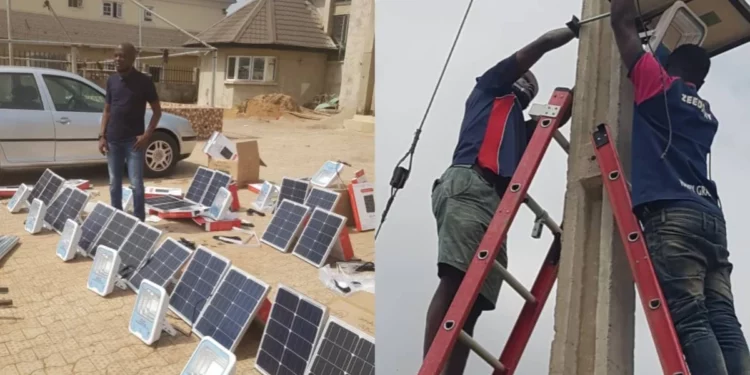As inflation continues to drive up expenses, finding ways to cut costs has become essential for both households and businesses. A significant portion of running expenses is attributed to power generation, making solar energy a viable solution for reducing these costs in the long term.
Solar power harnesses energy from the sun through photovoltaic (PV) panels that convert sunlight into electricity. By installing a solar power system, individuals and businesses can generate their own electricity, which decreases dependence on traditional energy sources. This transition not only promotes environmental sustainability but also leads to substantial long-term savings on energy bills.
Investing in solar energy can significantly lower energy expenses, making it an attractive option in today’s economy.
Nigeria is facing significant challenges as the largest generator and importer of electricity. With the recent spike in electricity tariffs and the price of diesel rising from N280 per litre in 2022 to N1300 in 2024, alongside petrol prices reaching N900 per litre, it is crucial for Nigerians to adopt solar energy solutions, as the current approach is unsustainable.h
Chairman of the Manufacturing Association of Nigeria (MAN), Bompai/Jigawa Branch, Mr. Mohammed Bello Umar, expressed concern over the impact of energy challenges on manufacturing in the country.
He noted that rising and unpredictable energy prices make the manufacturing process more expensive, ultimately leading to higher prices for finished products in the market.
For instance, in May 2024, Babcock University incurred over N300 million in electricity costs—an unplanned expense that strained its budget.
The e university’s Vice Chancellor, Prof. Ademola Tayo, has called on the government to review electricity tariffs for educational institutions, emphasizing that such hikes pose a threat to the quality of education in Nigeria.
Investing in solar energy can help individuals and businesses reduce electricity bills, increase property values, and achieve long-term financial benefits. Babcock University is committed to maintaining high educational standards while managing costs effectively. The institution plans to power all street lights on campus with solar energy and intends to expand this initiative to significantly reduce energy costs.
Paul Folorunso said, they have been using solar solutions for the past three years now. “It is just the money to purchase it that is an issue with most people.
Once you buy it with a good battery and panel that would be able to carry your flat or your house, you are good to go.
“We have a big generator, but we have given it out because with a generator, you will fuel and also service the generator. But with the solar, you don’t need all that; only what you need is to buy the solar with the capacity you want it to carry, and that’s all.
Another person who deployed the solar solution at its stores in Lagos said its diesel consumption dropped by 75 percent since the adoption of solar, and we hope to reduce our diesel consumption to about 2 percent.
“Instead of spending about 35-36 cents per kilowatt an hour on grid, you might find yourself operating about 11 cents per kilowatt an hour on solar. So if you are doing 11 cents per kilowatt hour, it is no brainer that this is where to go,” he said.
Head of C&I and Solutions Architect at Huawei Digital Power Business, Jeremiah Ejiroghene Aminode said, many people are switching to solar solutions these days.
He highlighted the challenges faced by supermarkets, including high diesel and electricity costs due to frequent generator use, as solar can provide sustainability and reduce carbon emissions.
“The cost of diesel has surged over 300 percent from N218 to N1,462 (approximately $0.92 per litre or $0.45 per kilowatt hour). In contrast, solar energy costs between $0.5 and $0.9 per kilowatt hour, while energy storage systems (batteries) cost 0.20 to 0.25 cents per kilowatt hour,” Aminode stated.



